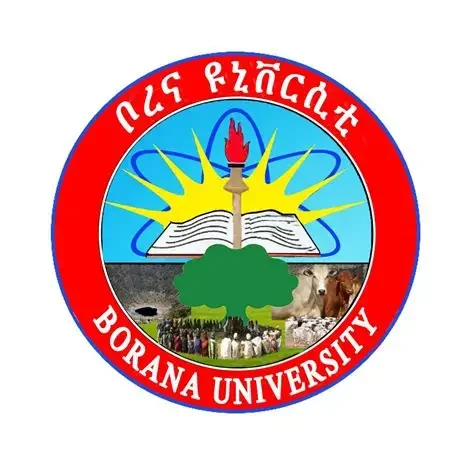
College of Pastoral Studies and Dryland Agriculture
Dean Message
Dear Members of the Community,
Welcome to the College of Pastoral Studies and Dryland Agriculture at Borana University. As the Dean of the college, I am proud to share our mission to support communities, promote sustainable practices, and prepare students to become leaders in pastoral and dry land agriculture.
At Borana University, our college is committed to addressing the unique challenges faced by pastoralists and dryland agriculture through a comprehensive and practical approach to education. Our College stands at the forefront of academic and community engagement, committed to addressing the complex challenges faced by pastoralists and dry land agriculture. We strive to equip our students with the knowledge, skills, and ethical values necessary to become effective leaders, problem-solvers, and change makers in their communities and beyond.
Our Mission
The Borana University provides quality and relevant education in different modalities to produce competent and problem-solving graduates built with knowledge, skills and ethics; conducts research that solve nation’s problems in general and community’s problem in particular and implements relevant community engagements.
Our Visions
Borana University aspires to be a leading university in East Africa by 2040 in pastoralism and range ecology, governance, indigenous democracies and culture studies and research.
Background of the Colleges
The College of Pastoral Studies and Dryland Agriculture at Borana University is a prominent academic institution dedicated to addressing the critical issues faced by pastoral communities and dryland agricultural systems in Ethiopia. The college emphasizes the development of sustainable solutions through education, research, and community engagement, aiming to improve the livelihoods of rural populations while promoting environmental conservation. It offers a comprehensive range of academic programs at both undergraduate and graduate levels, tailored to meet the pressing needs of the region. These programs include undergraduate degrees such as BSc. in Agricultural Economics, Animal Science, Natural Resource Management, Rural Development and Agricultural Extension, and Plant Science. Additionally, the college provides advanced master’s programs like MSc in Animal Nutrition and Feed Technology, Climate Change and Sustainable Development, and Rural Development, which are designed to enhance specialized knowledge and skills among students and professionals working in related fields.
The college currently serves a student population of 166 undergraduate students. This diversity reflects the college’s commitment to inclusive education and capacity building for all segments of society. The academic staff at the college consists of 35 qualified professionals, primarily holding MSc degrees, with a few holding BSc and PhD qualifications. The faculty’s expertise spans multiple disciplines, fostering a vibrant academic environment that encourages innovation, research, and the dissemination of knowledge relevant to dryland agriculture, pastoralism, and sustainable development.
The college’s strategic focus is on equipping students with practical skills and theoretical knowledge to effectively manage natural resources, enhance agricultural productivity, and develop resilient communities in dry land and pastoral settings. Through its research initiatives, the college aims to generate context-specific solutions that can be implemented at the community level, thereby contributing to sustainable development and poverty alleviation in the region. Overall, the College of Pastoral Studies and Dry land Agriculture plays a vital role in fostering capacity building, promoting sustainability, and supporting the socio-economic advancement of pastoral and dry land communities in wider region.


Research Thematic Areas
Theme 1: Pastoralism, Dry land Agriculture and poverty reduction, food security and livelihood security
- Pastoral and agro-pastoral system
- Livestock production, productivities, health and welfare
- Animal feed, nutrition and feed technology
- Plant production, productivities, health and Management
- Food security and sustainable livelihood system
- Agribusiness, value chain and enterprise development
- Climate smart and resilient livestock and agriculture
Natural resources, Environment, and Climate change for nature and human resilience
- Ecosystem services, biodiversity and conservation /resilience
- Rangeland resources, management/governance and sustainability
- Water and soil resources, watershed conservation and aquatic production
- Forest resources, wildlife and ecotourism, agro-forestry production, apiculture
- Climate change: causes, impacts , adaptation, resilience and ,mitigation
Facilities
The College of pastoral studies and dry land agriculture has the following facilities that assist in smoothly executing the learning – teaching activities of the programs in the College.
Laboratories: The College has one laboratory which soil laboratory.
Classrooms and Offices: The school has several class rooms which shares with other colleges/schools.
Library and Literature: The Schools shares libraries University programs in general.
Animal farms
- Borana breed cattle conservation farm
- Apiculture farm
- Beef farm (on progress)
- Dairy farm( on progress)
- Goat farm( on progress)
- Poultry farm(on progress)
